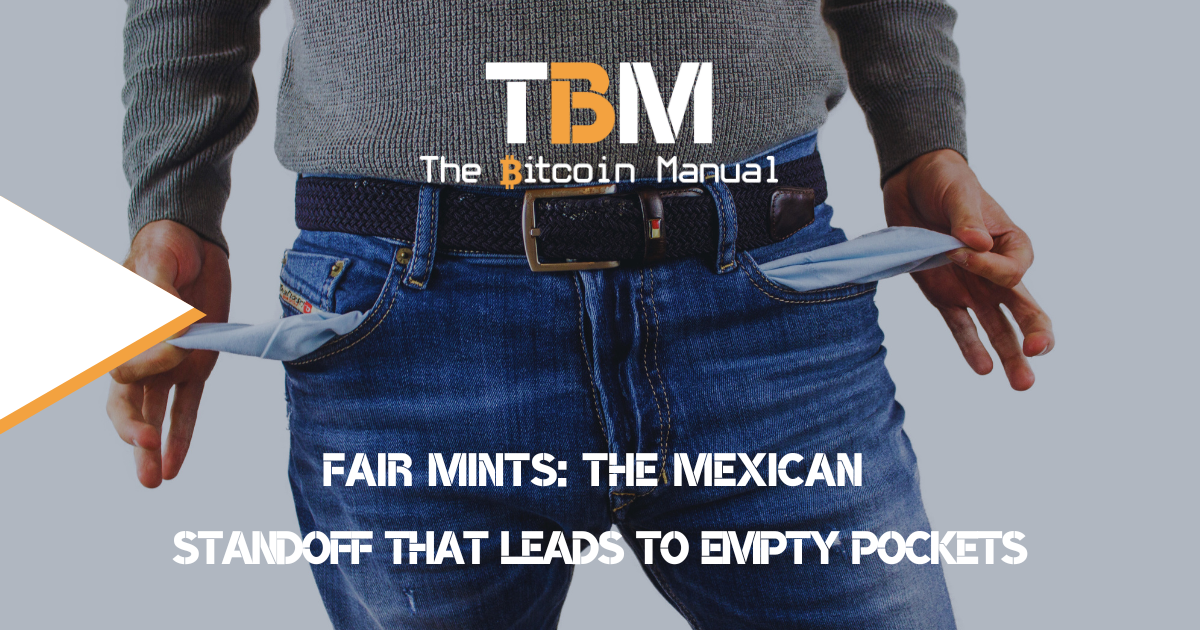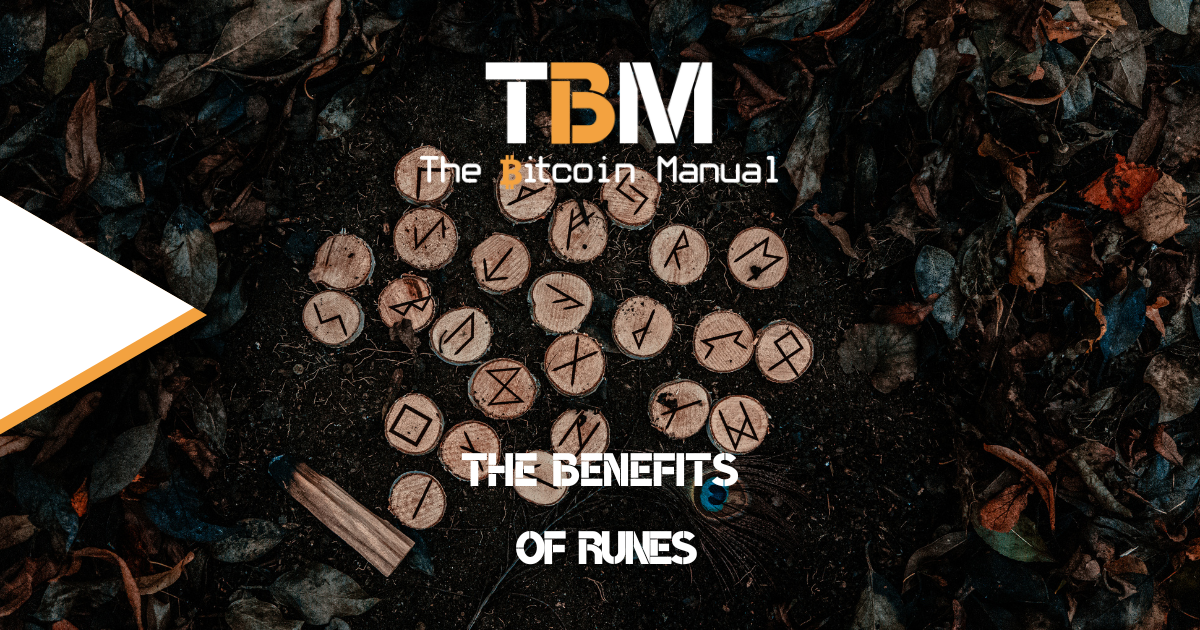Getting into bitcoin can be a daunting task, especially if you don’t have a fully orange-pilled friend or family member to lean on when you’re unsure or feeling confused. You’re in uncharted territory, and you’re entering a free market where there isn’t a single service provider for anything in the bitcoin stack. You will have to choose the ones you think are most appealing to you and learn to use these tools and services in a manner that serves your goals.
If you’re anything like me, you probably didn’t have a game plan or a cooking clue about what was going on when buying your first bitcoin, and you paid a dear price for it.
Know what you’re getting into
Bitcoin is a form of digital-only money that is decentralised, meaning it is not controlled by an entity, such as a government or a bank, but rather a collection of people who run infrastructures like nodes and mining rigs. To acquire and hold, you will need a bitcoin wallet.
The transactions on bitcoin are peer-to-peer, so there is no middleman between you and the receiver while your transactions will be recorded on a blockchain. This means there are no do-overs. If you mess up your transaction, it’s gone for good, and no one can save you from yourself.
It’s important to take your time and read up and learn before you even create your first on-chain transaction. So apart from the learning curve of using the technology in a safe and reasonable manner, what else should you be thinking about before handing over your filthy fiat money for sweet satoshis?
Well, here are eight tips to cook your noodle over.
1. Do you plan to trade?
One of the main selling points of bitcoin is its investment potential because it’s a brand new asset and people have no idea how to price it; with the market’s high volatility, many people invest in bitcoin seeking quick gains.
But successful bitcoin investing is not that simple.
This market is prone to speculation; you will be trading against market markers, exchanges and professional traders, all with capital, information and intending to take money off inexperienced traders. If you are going to trade, know that the odds are against you and most retail traders end up losing money, but if you still feel that you can beat the market go right ahead.
If you still planning to trade, you should pick an exchange that is the most reputable; try to avoid exchanges that take on extra risk by listing a bunch of other coins, as that could lead to contagion when these projects eventually fail.
Finally, if you do plan to trade, you will need to keep track of all your buys and sells, and the taxable events you create and report these to authorities come tax season so the government can seize a piece of your profits if you do manage to land some.
2. Do you plan to hold long-term?
If you plan to buy some bitcoin to hold it long-term as a part of your portfolio, then you should consider how you plan to hold that bitcoin. Are you going to:
- Leave it with a custodian
- Store it in a software wallet
- Secure it in a hardware wallet
- Secure it only with a seed phrase
Once you decide that, you should also consider failsafe such as duress wallets, distributed key management and deadman switches in the case of an unfortunate event so criminals cannot access your stack. Yet someone you trust can get a hold of it.
Alternatively, you can just leave that bitcoin to be lost forever if you don’t plan to pass it on.
3. Do you want it tied to your identity?
If you don’t want the bitcoin you acquire to be associated with your legal name and ID, you have every right to do so, but you will pay a premium for that privacy. Instead of purchasing your centralised bitcoin exchanges where you have to comply with KYC and AML regulations, you can opt for using bitcoin ATMs, P2P markets or trade vouchers or even your time working for bitcoin.
The liquidity on P2P markets isn’t great, and you will pay above the market price, so you should take it slow, wait for deals that suit you and accumulate your non-KYC stack slowly. You may also want to learn about privacy best practices like CoinJoins to keep your coin addresses and identity as far apart as possible.
4. Do you want convenience when buying?
If you’re simply about convenience and don’t care about anything else, you have two options, buying bitcoin and leaving it on an exchange to manage for you or buying a bitcoin derivatives product like an ETF or a trust like GBTC.
In either case, you’re not taking custody of real bitcoin; you only have a paper claim against some possible bitcoin held by a custodian. If they are to go belly up, it’s hard to say if your claim would be worth anything. So be sure you’re comfortable with those risks if you opt for any of these options.
5. Do you want to take self-custody?
One of bitcoins’ killer apps is the ability to take self-custody of any value, from $1 to $1 billion; it all could be done on the same wallet. So herein lies the conundrum, depending on how much value you plan to store, it goes hand in hand with how you self-custody. If you’re only holding a few satoshis worth, a mobile wallet or USB drive modified to hold bitcoin is fine.
But if you’re thinking about securing larger amounts, you might want to consider a more serious self-custody option, as I mentioned in point number 2.
6. Can you cope with volatility?
If bitcoin is simply a purchase you make out of curiosity or a hail mary, without currently learning or wanting to learn about how it all works, then I would recommend you steer clear of the asset altogether. If you not planning to learn about its network and unique properties, you’re very likely to have a low conviction in the asset. When bitcoin inevitably has downturns due to altcoin scam blow-ups, or macro market movements, you’ll panic and sell at a loss.
7. Do you have conviction?
Bitcoin has many enemies; for some reason, people hate bitcoin, and those people could be part of your family or friendship circle. If you don’t have conviction, you’re not going to be able to debate their arguments, which are often misunderstandings of bitcoin, and you might side with them and decide to sell.
If you don’t understand the power of bitcoin, certain government regulations and pressures might encourage you to capitulate and sell. So consider learning about bitcoin and the various negative arguments about them, and see how they are debunked with logic before you start to buy up any reasonable amount of bitcoin.
Another issue with not conviction in bitcoin and the thesis, then you’re going to be tempted to sell at certain prices, or due to certain market conditions, you’re going to be suckered into scams and altcoins promising you better performance but never delivering or putting your capital at risk in other investments because you think you can do better than bitcoin.
Greed is a powerful emotion, and we humans are great at rationalising our behaviour, no matter how destructive or stupid.
8. Do you want to leave it for your loved ones?
If you plan to purchase bitcoin with the intent of leaving it to your family members. Then it’s recommended that you first learn about cold storage, acquire a wallet, learn how to create multi-sig keys and practice using these tools long before you move any bitcoin across. Once you’re comfortable with these setups, you can move some bitcoin over to test, and if it all checks out as per the blockchain, you can go ahead and move your value across. You might also need to teach your loved ones how to access it and put safeguards in place for the wallets and keys.
If you or your family are not the most tech-savvy, you may want to purchase it directly with a bitcoin financial service provider such as Casa or Unchained Capital, who can help you set up multi-sig wallets and assist with your estate planning. You can purchase your bitcoin somewhere else and migrate it to a hardware wallet once you’ve been set up with these services, but if you want to deal with one service provider for the entire process, the option is there too.
Are you ready for the orange pill?
If you’re new to bitcoin and have not ventured down acquiring it for yourself or how to self-custody bitcoin, what is stopping you? If you’ve already bought bitcoin KYC or Non-KYC, how has the experience been for you? What was the one thing you thought you’d want to know before you bought your first bitcoin?
Let us know in the comments down below. We’re always keen to hear from bitcoiners from around the world.




